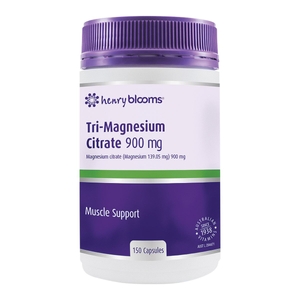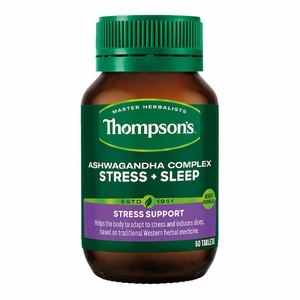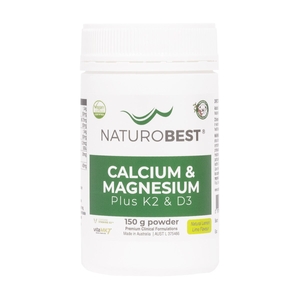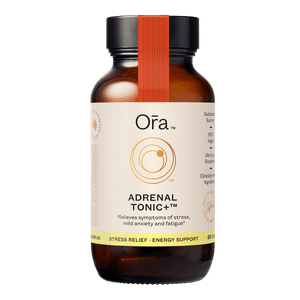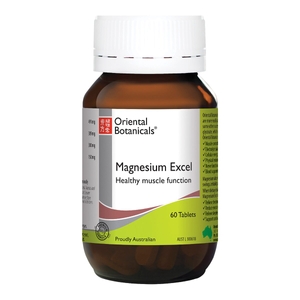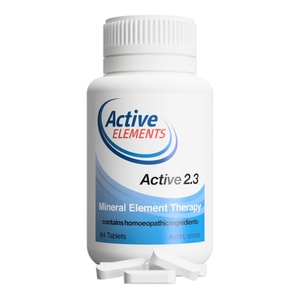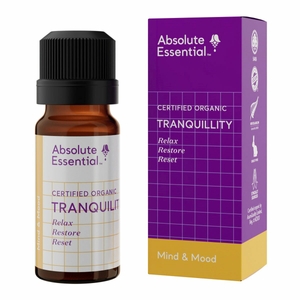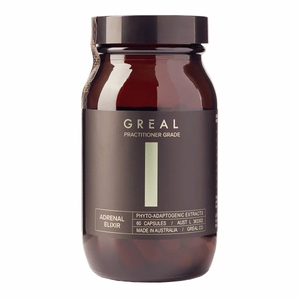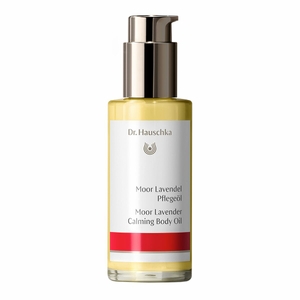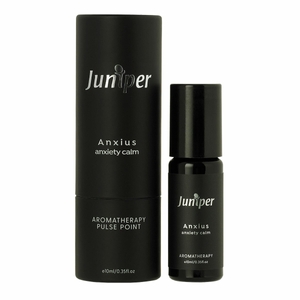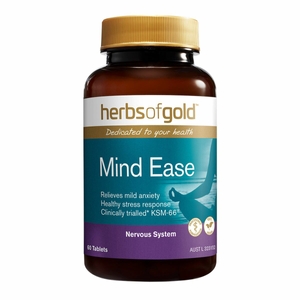
Anxiety is your body’s natural reaction to stress or discomfort, marked by feelings of fear, dread or unease (1).
While these feelings often pass as the stressor subsides, for some, anxiety persists and intensifies, leading to overwhelming fear, restlessness, worry, irritability, disrupted sleep, and physical symptoms such as muscle tension and heart palpitations (2,3).
Various factors contribute to anxiety, including genetics, work stressors, life-altering events, family or relationship issues, past traumas, physical health issues, and personality traits such as low self-esteem and perfectionism (1,2,3).
Fortunately, there are natural remedies that can help you increase your resilience to anxiety and stress.
GABA
Gamma-aminobutyric acid (GABA), an amino acid, functions as an inhibitory neurotransmitter that promotes relaxation and slows brain activity (4).
It helps regulate nerve cell function and may relax your muscles, reduce insomnia, and calm anxiety (4,5).
Ashwagandha
Ashwagandha is an adaptogenic herb that has been used in traditional medicine to promote relaxation and reduce stress and anxiety (6,7,8). Adaptogens are substances that help your body adapt to stress.
It is especially useful when morning cortisol levels are high, which may feel like anxiety in the morning or dreading the day ahead.
B vitamins
B vitamins help combat stress and stabilise your mood (9,10).
Vitamin B6 is important for the synthesis of neurotransmitters, including serotonin, dopamine, and GABA that regulate mood and maintain a healthy nervous system (11).
Vitamin B12 is important for reducing chronic stress and anxiety. It helps improve your concentration and energy levels and allows your nervous system to function adequately (12,13).
Chamomile
Chamomile, particularly tea, has been used for centuries as a natural remedy to promote relaxation and ease anxiety (14,15).
The calming effects of chamomile may be due to the flavonoid apigenin, which binds to benzodiazepine receptors in the brain, inducing a relaxing effect and alleviating feelings of anxiety (16).
GOS
Galacto-oligosaccharides (GOS) are a type of prebiotic fibre found in certain foods and dietary supplements.
They promote the growth of beneficial gut bacteria that aid in producing serotonin, impacting mood and anxiety (17).
The gut-brain axis is a communication network between the gut and brain that allows the gut microbiota (the microorganisms residing in the gut) to influence your emotions, mood, and stress response (18).
By promoting beneficial gut bacteria and supporting a balanced gut environment, GOS may contribute to mood regulation and a more adaptive stress response, which is critical for managing anxiety (17,18,19).
Holy basil
Holy basil, also known as Tulsi, boasts a rich history in traditional medicine like Ayurveda (20).
As an adaptogen, it enhances your resilience to stress and regulates cortisol levels, thereby contributing to anxiety relief (20,21).
It also interacts with neurotransmitters, including serotonin, dopamine and GABA that are involved in enhancing mood and inducing calmness (22,23).
Kava
Kava, a plant-based drink, is renowned for its ability to promote relaxation and reduce stress and anxiety (24).
It contains kavalactones that interact with brain neurotransmitters, such as GABA, creating a calming effect (25).
L-Theanine
L-Theanine, an amino acid found in tea leaves—especially in green tea—is known for its ability to promote relaxation without causing drowsiness (26,27).
It also promotes alpha brain wave activity, leading to a state of relaxed alertness and enhanced focus and attention (28,29).
Lavender
Lavender is a calming herb known to reduce anxiety and help relax the body (30,31).
It is often used in various forms, such as essential oils, sachets, or in teas, to help create a calming environment and relieve symptoms of anxiety, like nervousness, headaches and muscle pain (30,32).
Lemon Balm
Lemon balm may alleviate anxiety by interacting with GABA receptors, promoting a relaxing and calming effect (33,34).
It also helps reduce anxiety by influencing neurotransmitters like serotonin and dopamine, leading to a calm state (34,35).
Magnesium
Magnesium is a mineral that has calming effects and can increase GABA levels in the brain, reducing the excitatory activity of glutamate, a neurotransmitter that is associated with anxiety (36,37).
Reishi
Reishi, a medicinal mushroom, acts as an adaptogen, helping your body better adapt to stress and alleviate anxiety (38,39).
It contains compounds, such as triterpenes and polysaccharides, that may promote relaxation and ease anxiety (39,40).
Rhodiola
Rhodiola rosea is an adaptogenic herb that has been traditionally used to help the body cope with stress and improve resilience (41,42).
It regulates the body's stress response through the hypothalamic-pituitary-adrenal (HPA) axis, which could help alleviate anxiety by managing how the body reacts to stress (41,42).
Rhodiola may impact neurotransmitter levels, including serotonin, dopamine, and norepinephrine, which play roles in mood regulation (42,43).
Zinc
Zinc, along with vitamin B6 and magnesium, helps to regulate GABA and serotonin, neurotransmitters that influence mood and anxiety (44,45).
9 lifestyle tips to alleviate stress and anxiety
Aromatherapy
Aromatherapy uses essential oils with calming properties to promote relaxation, boost your mood and alleviate anxiety.
Scents to use for anxiety include bergamot, lavender, sandalwood, sweet orange and ylang ylang.
CBT
Cognitive behaviour therapy (CBT), a type of talk therapy, can help you understand and change the thought patterns and behaviours that contribute to anxiety.
It provides you with practical tools to help you manage anxiety and confront triggers more confidently.
Cold water immersion
Exposure to cold water triggers a response known as the diving reflex (50). This reflex causes your body to conserve oxygen by slowing your heart rate and redirecting blood flow to vital organs (50). This process may induce a calming effect and help reduce anxiety symptoms (51).
Deep Breathing
Practicing deep, slow breathing techniques that involve your diaphragm—a muscle beneath your lungs—can soothe your nervous system, alleviate stress, and ease symptoms of anxiety (52).
EFT
Emotional Freedom Techniques (EFT) involves tapping on specific points on your body while thinking or talking about your worries or fears. This process can help you release stress and change how you think about your concerns (53,54).
Exercise
Regular physical activity, such as walking, jogging, swimming, or yoga, can reduce cortisol levels, regulate the stress response, and release endorphins that alleviate pain and anxiety (55,56).
By concentrating on the movements and sensations of exercise, you can redirect your attention away from anxious thoughts.
Exercise also influences neurotransmitter levels, including serotonin and dopamine, which are crucial for mood regulation (55,56).
Journaling
Writing down your thoughts and feelings can help you process emotions and gain insights into your anxiety triggers (57,58).
Meditation
Meditation can help to relieve anxiety symptoms, helping you to feel more at ease (59,60).
Techniques like mindfulness meditation help you focus on the present moment, reducing anxious thoughts and promoting relaxation (59,60).
Nutrition
A healthy diet that provides adequate amounts of protein, carbohydrates, fat, fluids, and nutrients is associated with a reduced risk of anxiety (61,62).
Healthy eating patterns, such as the Mediterranean diet, are linked to improved mental well-being compared to less healthy options such as the Western diet (61,62).
Key-takeaway
There are numerous natural remedies and lifestyle strategies that can enhance resilience to stress and anxiety.
These approaches focus on regulating neurotransmitters, promoting relaxation, and developing resilience to stressors, ultimately contributing to a more balanced and calmer state of mind.
A balanced diet, regular exercise, stress management techniques, and, if necessary, professional guidance should all be considered when addressing anxiety. If you are considering making any significant changes to your diet or supplementation, it's advisable to consult with a healthcare professional.

